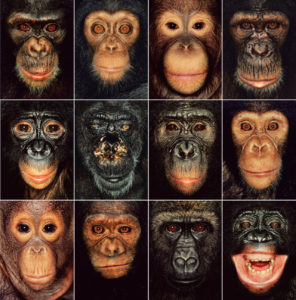Dodeweg 8
3832 RD Leusden
Netherlands

The focus in animal ethics has long been on the moral standing of sentient individuals. It was argued that because nonhuman animals have interests strong enough to lay a claim on others, they deserve certain inviolable rights, similar to how this works in the human case. In recent years, political philosophers have used the idea of moral animal rights as a starting point for thinking about political rights. It is argued that interests of nonhuman animals should be taken into account in liberal democracies for reasons of equality, democracy, or justice. The political approach to animal rights provides us with a new perspective on nonhuman animals and human-animal relations. Conceptualizing groups of animals as social or political groups can clarify rights and duties beyond the micro-level. Using political concepts, such as citizenship or democracy, in relation to nonhuman animals, also brings to light their agency in human-animal relations, and shows us how they co-shape what we usually perceive as the product of human activity. Examining existing ideas about human social justice in relation to other animals can help us to get a better grasp on structural similarities, for example with regard to stereotyping and silencing, and differences. These insights can also contribute to interspecies solidarity.
The new perspective also raises many questions, with regard to nonhuman animal agency, power relations, justice, and democracy. This conference aims to address these questions and focusses on related subjects:
- Political animal agency. How do nonhuman animals exercise political agency? How can humans support their agency, and/or take it into account in political systems? How to conceptualize political animal voice?
- Animals and the government. How should animal interests be taken into account in human societies? How should nonhuman animals be represented? Should they be able to represent themselves? Are nation states always bad news for nonhuman animals? Should liberal governments have the power to constrain citizens’ eating habits (concerning organic meat, vegetarianism or veganism)?
- Animal justice. Are rights the best tool to come to justice? Do other animals need constitutional legal rights, or are human legal duties in relation to other animals sufficient? How do we establish social justice, by pursuing ideal or non- ideal theory?
- Animal freedom. Traditionally, nonhuman animal freedom is conceptualized as negative freedom. Recent relational approaches to animal politics challenge this perspective. How should we think about animal freedom, and how can we work towards it?
- Animals and democracy. Should animal interests be represented for reasons of democratic equality? Should nonhuman animals be seen as part of the demos, and on what grounds? What does animal democratic agency entail? How does the essential democratic notion of piecemeal engineering relate to the yet utopian goal of animal liberation?
- Intersectionality. How are different forms of oppression related? Should different social movements work together? Is justice for animals part of justice for all?
- Animals and capitalism. Is capitalism bad for animals or does it also bring possibilities for positive change (i.e. in vitro meat)? Are nonhuman animals members of the working class? Should the economic benefits of industrial exploitation trump moral concerns?
- Animals and the environment. What is the relation between animal justice and environmental justice? Should all humans go vegan and for what reasons? How does the Anthropocene play a role in the destruction of the planet? Should animals have habitat rights?
- The future of animal rights activism. What directions should we take, for which reasons, and how can we become more effective as a movement?

Leave a Reply